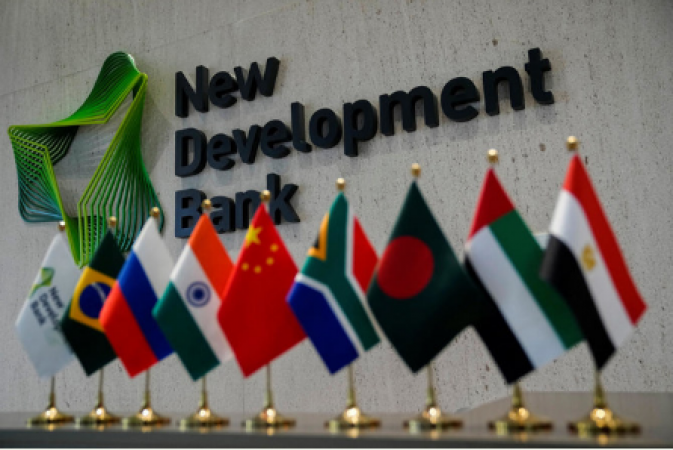
Cape Town: Beginning on Thursday, foreign ministers from the BRICS nations will gather in South Africa to discuss how to best balance Western geopolitical dominance in the wake of Russia's invasion of Ukraine.
The discussions serve as a lead-up to a summit that will take place in Johannesburg in August and that has already sparked controversy due to the possibility that Russian President Vladimir Putin, who is the subject of an arrest warrant from the International Criminal Court (ICC), will attend.
In March, it accused him of committing the war crime of forcibly removing kids from Ukrainian territory that was under Russian occupation. Moscow disputes the charges. Putin had already been invited by South Africa in January.
Also Read: Ex-PM Khan of Pakistan is in court as a rights organisation issues a warning
Foreign ministers from Brazil, Russia, India, and South Africa will attend the meeting on Thursday in Cape Town, according to South African authorities. There is a deputy minister for China.
Although no agenda has been disclosed, analysts predicted that discussions would focus on strengthening bonds among current participants and considering a group expansion.
According to Cobus van Staden of the South African Institute of International Affairs, "BRICS is positioning itself as a counterbalance to the West and as a means of creating space for emerging powers."
Also Read: A wildfire on Canada's Atlantic coast compels 16,000 people to leave their homes
Formerly thought of as a loose, largely symbolic grouping of various emerging economies, the BRICS has recently taken on a more tangible form, initially under the direction of Beijing and more recently, with Moscow providing additional impetus following the outbreak of the Ukraine War in February 2022.
A source in the South African foreign ministry said discussions of the New Development Bank of the BRICS, which stopped funding projects in Russia to comply with sanctions, were anticipated on Thursday.
BRICS leaders have stated they are open to admitting new members, including oil-producing nations, despite the growing geopolitical polarisation brought on by the conflict in Ukraine.
According to officials, a list of countries that have either submitted formal applications to join or expressed interest includes Venezuela, Argentina, Iran, Algeria, Saudi Arabia, the United Arab Emirates, and Algeria.
Given the petrodollar system, it will be important if they can include oil-producing nations, according to South African political analyst William Gumede, who has written extensively on BRICS.
South Africa, despite being the group's smallest member, is one of its most ardent supporters. The ICC's announcement regarding Putin, however, has complicated its plans for the summit that will take place from August 22 to 24.
If Putin attended the meeting in Johannesburg, there would be pressure on South Africa, which is a member of the ICC, to have him detained.
Putin hasn't made his plans public; the Kremlin has only stated that Russia will participate at the "proper level."
Also Read: Islamic charities in the UK give $24.4 billion to charitable causes each year
The stance of South Africa is unclear. Pretoria has declared that it will uphold its obligations as a member of the ICC, but the administration is still considering whether to host Putin or even move the summit to China.
Nic Borain, an independent political analyst, claimed that the government was torn between its friendship with Russia and support for the BRICS on the one hand, and the impending backlash from important Western economic partners on the other. Obviously, Putin staying away would be the best outcome for South Africa.